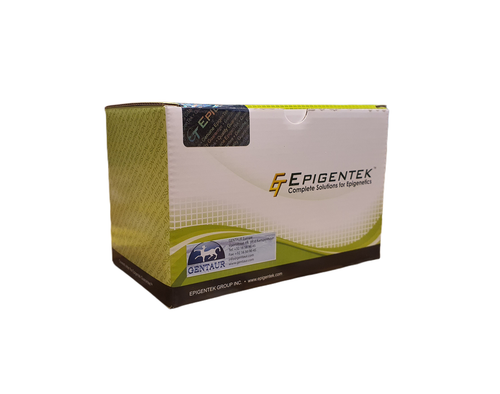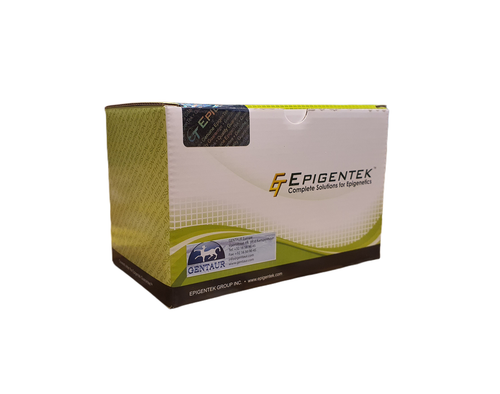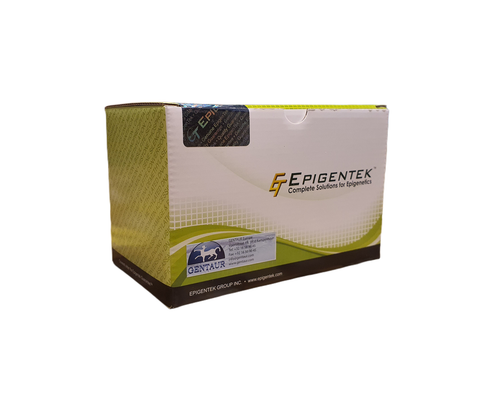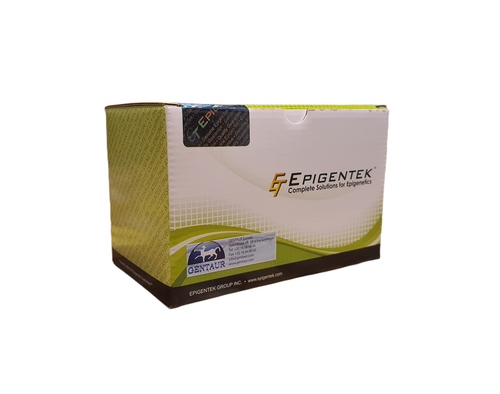Product Description
The EpiQuik™ In-situ and Ex-Situ Hydrogen Peroxide (H2O2) Assay Kit is a complete set of optimized buffers and reagents to accurately measure hydrogen peroxide from various samples in-situ (living cells) and ex-situ (cell/tissue extracts and body fluids) in a fast and sensitive manner. The kit has the following advantages and features:
- Fast procedure, which can be finished within 10 min.
- Homogeneous fluorescence assay for both in-situ (live cells) and ex-situ (cell/tissue extract or body fluids) H2O2detection, which is highly sensitive with LOD around 0.03 µM or 1 pg.
- Strip-based microplate format makes the assay flexible via manual or high throughput analysis.
- Simple, reliable, and consistent assay conditions.
Background Information
Hydrogen peroxide (H2O2) is a reactive oxygen species generated in cellular oxygen metabolism. Abnormal H2O2 contributes to oxidative cell damage and the progress of diseases such as inflammation, ischemia, and neurodegeneration. Hydrogen peroxide is a major marker of the ROS release from cell or cell organelles such as mitochondria. H2O2 can also be an indicator of the oxidase activity such as NADPH and glucose oxidase as a co-product of oxidase-catalyzed reactions. Thus, it is important to detect H2O2 from various biological samples in determining how oxidative stress modulates varied intracellular pathways under physiological and pathological conditions.
Principle & Procedure
This kit is designed for the measurement of hydrogen peroxide from various samples in-situ and ex-situ. In the assay with this kit, H2O2 assay probe fluorogen 10-Acetyl-3,7-dihydroxy-phenoxazine is incubated with various samples in the strip wells. Hydrogen peroxide contained in or generated from the samples reacts with the H2O2 assay probe and produces highly fluorescent oxidation products. The measured intensity of fluorescence from oxidation products is proportional to the amount or concentration of H2O2.
Starting Materials
Starting materials can include live cells, extracts from various tissue or cell samples such as cells from a flask or microplate cultured cells, culture supernatant, plasma/serum, and urine samples, etc.
 Euro
Euro
 USD
USD
 British Pound
British Pound
 NULL
NULL










